What lies in our future?
It would take a multi-pronged approach to bring Pakistan out of the deep crisis it faces at this time on many fronts.
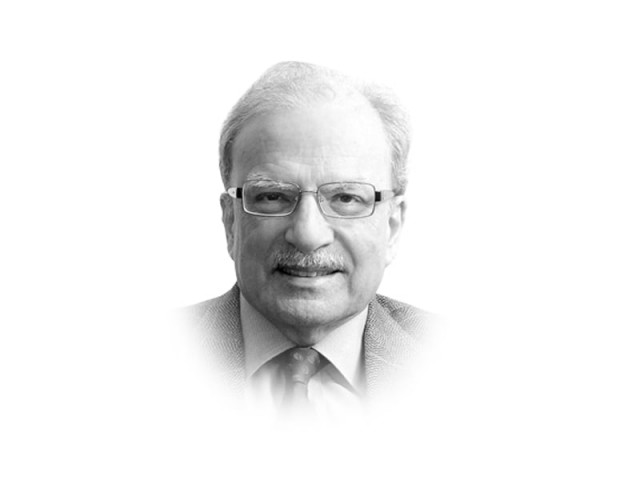
What lies in our future?
The recent agreement with the US on reopening the Nato supply route to Afghanistan will bring some financial rewards. The Obama Administration will send Congress a request to appropriate $1.2 billion for Pakistan. This money is owed to Islamabad for the services that have already been provided. Pakistan estimates the owed money at more the $3 billion. There is, however, no mention of the flow of funds from the Kerry-Lugar-Bermen bill, which was supposed to put Pakistan-US relations on a firmer ground. Even if Congress acts with dispatch — not certain that it will, given Pakistan’s very low reputation in that body — it might ease the financial situation for a while. But the basic arithmetic will not change. Pakistan spends more than it collects in taxes; it buys more imports that it is able to earn from exports.
In fact, exports are doing poorly and the trade deficit has widened. While Raja Pervaiz Ashraf, the new prime minister, has made solving the deepening energy crisis his first priority, prospects don’t look promising. Electricity shortage has resulted in loadshedding of more than half of the day in many areas, particularly in Punjab. There are also shortages of natural gas. The people are becoming restive and many have taken to demonstrating in the streets. The State Bank of Pakistan has begun to lose reserves and the rupee is under pressure as its value has declined by more than five per cent in 2012.
There are no signs of any easing of tension between the government led by President Asif Ali Zardari and the senior members of the judiciary. The Supreme Court has been relentless in pursuing cases of alleged corruption by members of the administration, including the president. It forced Yousaf Raza Gilani out of premiership and has begun to move against his successor.
“The point is that the prospect of disaster, no matter how obvious, is no guarantee that nations will do what it takes to avoid that disaster,” wrote Paul Krugman, the Nobel Laureate, in a recent column in The New York Times. His reference was not to Pakistan but to Europe, where a dithering leadership was letting the continent slip towards an economic abyss. But the possibility of disasters on several fronts does not seem to have focused the minds of the policymakers in Pakistan, either. There is a consensus both inside and outside Pakistan that most systems in the country are now dysfunctional. The most worrying development of recent years is the emergence of extremism, a movement joined in by those who are working towards a radical change in the system of governance. For them, liberal democracy the rest of the world has decided is the best way to govern is an anathema. These groups and people have to be reintegrated into society. Their anti-state activities have cost the economy dearly and ruined the country’s reputation in the international community.
It would take a multi-pronged approach to bring Pakistan out of the deep crisis it faces at this time on many fronts. In the area of economics, public policy will have to address the issue of poor governance. It will need to deal with the failure of the state to raise sufficient resources for delivering public goods to an increasingly frustrated and disgruntled citizenry. It must overcome serious shortages of goods and services critical for industrial output as well as household consumption. There is work to be done to reduce interpersonal and inter-regional income inequalities. Physical infrastructure needs to be improved and what has already been built needs to be maintained. It has not fully dawned on the policymakers that global warming is likely to prove disastrous for Pakistan, making the already stressed water situation even more problematic. The list of ‘dos’ is a long one.
Experiences from other parts of the world show that appropriate sets of economic policies and good quality leadership can quickly turn the situation around. This happened in Latin America in the 1990s. It is happening now in some parts of Africa. But these changes always occur when those who lead are committed to improving general welfare and not their own economic situation and that of their families and close associates. It requires political will to take difficult decisions when they are not favoured by some powerful segments of society. Most of these conditions don’t exist in Pakistan. But they may appear as a consequence of the cleaning of the political house that may result from the next general election. One can only hope that this wait will not be a long one.
Published in The Express Tribune, July 17th, 2012.

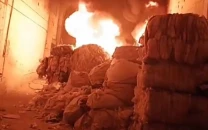
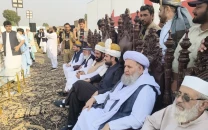
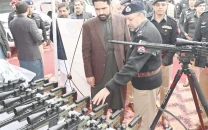
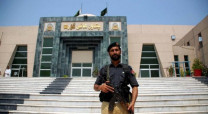
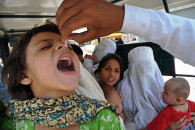
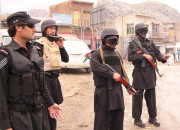












COMMENTS
Comments are moderated and generally will be posted if they are on-topic and not abusive.
For more information, please see our Comments FAQ